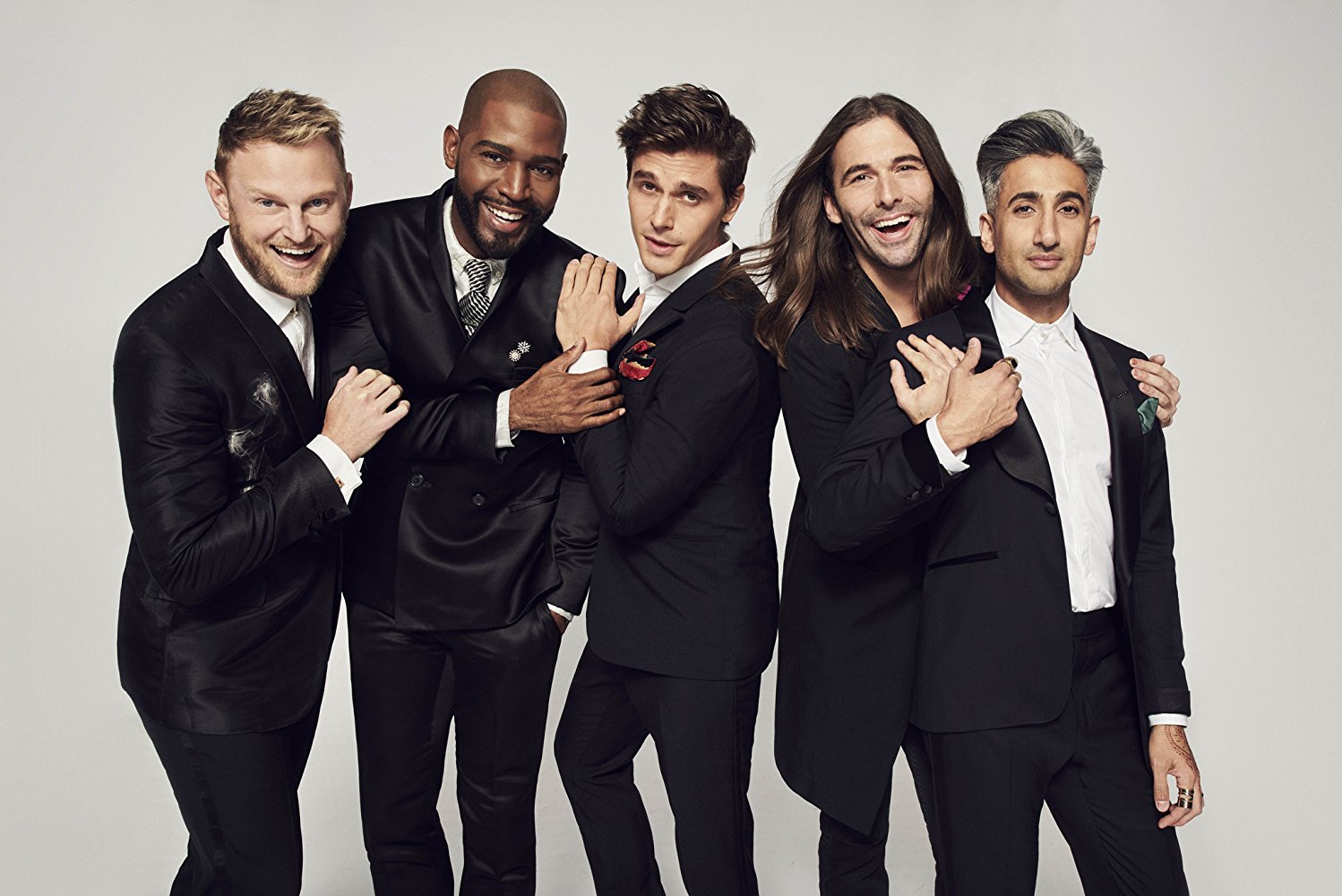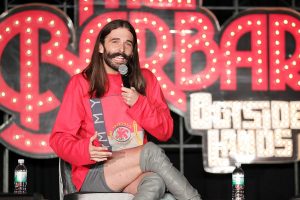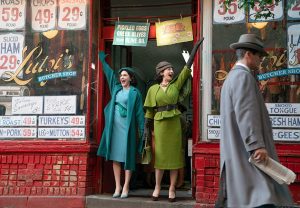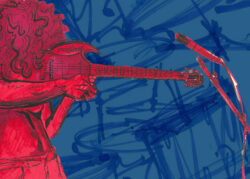If I’m being honest, I went into this show with a feeling of skepticism. While the show’s central premise—five gay man helping predominantly straight men become more fashionable—sounds enticing, I couldn’t help but feel a certain level of discomfort. I thought, or more accurately hoped, that as a collective, America had moved past its stereotypical notion of what it means to be queer and,in this case, what it means to be a gay man. The re-introduction of this show felt like somewhat of a loss for queer representation in media. It felt like gay men were forever doomed to be the token best friend whose aptitude for style makes them uniquely qualified to be a helper to heterosexuals everywhere. However, after watching only one episode of the new Netflix series, I found that I could not have been more wrong
Before I get into talking about the show, I should probably introduce its stars: the Fab Five. First up, we have Karamo.
Karamo is the only black member of the cast and his area of expertise is culture. Basically, his job description involves setting up activities for the subject of the fab five’s attention. I will admit that some of the outings are a little cheesy and come with some deeply contrived metaphors (teaching a shy man to “step into the ring” by taking him to a boxing class or helping a closeted gay man come out of the closet by bringing him to a ropes course). However, despite this, Karamo remains a charming and enthusiastic hype man for every one of the show’s contestants.
Bobby is the show’s design expert. While he doesn’t get as much screen time as some of the other members of the fab five, Bobby definitely does the most work from week to week. Not only does he design an entirely new living space, but he also oversees drastic renovations in the homes of the contestants, all in the span of a week.
When it comes to expertise, Antoni, the Fab Five’s food “specialist” seems to fall a bit short. Without any real experience in the food industry, Antoni keeps things relatively simple in the kitchen. However, while he has received some criticism for his lack of culinary knowledge, I would argue that the simplicity of his segments is not necessarily unfavorable. Whether it’s a result of laziness or some internalized definition of masculinity, many of the show’s subjects avoid spending time in the kitchen. Antoni’s job is to introduce the men to this area of their home and help to assuage their fears of cooking, not to turn the men into master chefs in one week. Overall, Antoni has a kind spirit and is a nice edition to the Fab Five.
Up next, we have Tan, the show’s authority on fashion. Tan is British-Pakistani, making him the only other person of color in the Fab Five and every week manages to fill the mens’ closets with the adult version of Garanimals tailored to each subject. He supplies each man with foolproof combinations of well fitted shirts and pants, completely overhauling their entire wardrobes with one trip to the mall.
Last, but most definitely not least, we have Jonathon, the show’s grooming specialist. Jonathan is by far the most flamboyant member of the Fab Five and one of the most memorable aspects of the show. He is undyingly positive and upbeat and has the ability to make any subject feel confident and worthy of the self care about which he preaches. Jonathan’s notion of self care is without vanity or glutton, but is innately bound by the philosophy that maintaining one’s physical well-being is a duty bestowed upon each individual and, therefore, must be prioritized. Jonathan feels like a driving force of Queer Eye and his perpetuation of this conception of self care is its beating heart.
It is this idea of self care that directly contends with the image of masculinity held by many of the show’s subjects. Each week, the Fab Five work to deconstruct the normative ideas of what it means to be a man in America by pushing their subjects to directly reckon with the fact that they are failing to be the people they aspire to be due to their inability to carry out the most basic of tasks such as dressing or feeding themselves. But this type of incompetence is not the fault of the men. It is the fault of a society that raised them to believe that, as men, they were not meant to devote time to the maintenance of the self. This interrogation of our modern conception of masculinity and maleness is at the core of the show.
With that being said, not all of the show’s social messages are as well articulated as this one. While an examination of masculinity runs throughout the series, other complex and contentious issues are ostensibly reconciled in a a single forty-five minute episode. This is most noticeable in the show’s third episode, “Dega Don’t.” The subject of the makeover is a police officer and father of two living in Winder, Georgia. The episode opens with the Fab Five on their way to meet with their latest subject when they are suddenly pulled over. Karamo, the only black member of the cast is in the driver’s seat and is visibly on edge at the sound of police sirens. After the officer asks him to step out of the car without any reasonable cause, it is revealed that the officer nominated was the makeover subject and the entire situation was meant to be a gag set up by the producers of the show. This attempt to put a light-hearted spin on a devastating reality for the black community was in poor taste. Later in the episode, Karamo and the police officer receiving the makeover have a discussion about police brutality that results in both claiming they have a new understanding and respect for the other. The framing of this resolution between the two men, while it may have been entirely genuine, felt like a simplistic answer to systemic impression. No matter what, the show’s creators felt the need to wrap up each episode with a neat bow, even if it is tied around a centuries old issue.
So yes, I will admit that Queer Eye is in no way a holistically perfect show. However, in a way, it is the perfect show for today. In a moment when America is attempting to reckon with and question its definition of masculinity, the Fab Five seem to have some answers.








[…] Source link […]